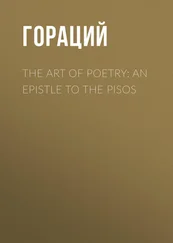Charles Gore - St. Paul's Epistle to the Ephesians - A Practical Exposition
Здесь есть возможность читать онлайн «Charles Gore - St. Paul's Epistle to the Ephesians - A Practical Exposition» — ознакомительный отрывок электронной книги совершенно бесплатно, а после прочтения отрывка купить полную версию. В некоторых случаях можно слушать аудио, скачать через торрент в формате fb2 и присутствует краткое содержание. Издательство: Иностранный паблик, Жанр: foreign_religion, foreign_antique, foreign_prose, на английском языке. Описание произведения, (предисловие) а так же отзывы посетителей доступны на портале библиотеки ЛибКат.
- Название:St. Paul's Epistle to the Ephesians: A Practical Exposition
- Автор:
- Издательство:Иностранный паблик
- Жанр:
- Год:неизвестен
- ISBN:нет данных
- Рейтинг книги:4 / 5. Голосов: 1
-
Избранное:Добавить в избранное
- Отзывы:
-
Ваша оценка:
- 80
- 1
- 2
- 3
- 4
- 5
St. Paul's Epistle to the Ephesians: A Practical Exposition: краткое содержание, описание и аннотация
Предлагаем к чтению аннотацию, описание, краткое содержание или предисловие (зависит от того, что написал сам автор книги «St. Paul's Epistle to the Ephesians: A Practical Exposition»). Если вы не нашли необходимую информацию о книге — напишите в комментариях, мы постараемся отыскать её.
St. Paul's Epistle to the Ephesians: A Practical Exposition — читать онлайн ознакомительный отрывок
Ниже представлен текст книги, разбитый по страницам. Система сохранения места последней прочитанной страницы, позволяет с удобством читать онлайн бесплатно книгу «St. Paul's Epistle to the Ephesians: A Practical Exposition», без необходимости каждый раз заново искать на чём Вы остановились. Поставьте закладку, и сможете в любой момент перейти на страницу, на которой закончили чтение.
Интервал:
Закладка:
ii
The Epistle to the Ephesians gives us St. Paul's gospel of the Catholic Church. So far from being a man of one idea, St. Paul fascinates and sometimes bewilders us by the intricacy and variety of his thoughts; but like the innumerable leaves and twigs of some finely-grown tree which emerge, all of them, through branches and boughs, out of one great trunk, strong and straight, and one deep and firmly-set root, so it is with the infinitely various topics and suggestions of St. Paul. They run back into a few dominant thoughts, which in their turn have one trunk-line of developement and one root. The root is the conviction, finally smitten into the soul of St. Paul at the moment of his conversion on the road to Damascus, that Jesus is the Christ; and the trunk-line of development is that which is involved in St. Paul's special commission to preach the gospel to the Gentiles, that is to say, the principle that the Christ is the saviour of Gentiles as of Jews and on an equal basis – or in other words, that the Christian church is catholic.
When St. Paul acknowledged that Jesus of Nazareth was the Christ, this of course meant that he remained no less than formerly an adherent of the Jewish faith, and that he 'worshipped' without any breach of continuity, 'the God of his fathers.' So he is fond of insisting[ 2 2 Acts xxiv 14; xxvi. 6, 7, 22, 23; 2 Tim i. 3.
]. Thus to him the Church of Christ is still 'the commonwealth of Israel,' God's ancient church, though reconstructed[ 3 3 Eph. ii. 12-19.
]. For the religion of Israel had had for its main motive the hope of the Christ. All that St. Paul now believed was that this hope had been realized, and realized to the shame of Israel in One whom they had rejected and crucified. But if to believe that Jesus was the Christ involved no breach with the religion of Israel, yet it did involve the recognition that it had been reconstituted on a new basis, and in a way that suggested to existing Israelites nothing less than a revolution. The church of God had, in St. Paul's present belief, widened out from being the church of one nation into being a catholic society, a society for all mankind.
If St. Paul's epistles are taken in those groups into which they naturally divide themselves, we find that in the first group, that of the two epistles to the Thessalonians, all his favourite topics are present as it were in the germ, but nothing that is specially characteristic of him is yet developed. The free admission of the Gentiles into the Church is, with the accompanying hostility of the Jews, assumed[ 4 4 1 Thess. ii. 14-16.
], but not much insisted upon; but in the interval between these epistles and that to the Galatians the subject had gained fresh and poignant interest. A party of Christians having their centre at Jerusalem had been trying – in spite of the decision of the apostolic council at Jerusalem – to reimpose upon the consciences of Gentile Christians, and with especial success in the Galatian province, the obligation of circumcision; or in other words had been trying to make it evident that the Church of God was as much as ever the people of the Jews, and that Gentiles could only become Christians by becoming also Jewish proselytes pledged to keep the law of Moses. In view of this attempt St. Paul re-embarks upon his great campaign for the catholicity of the Church, and in his epistles of the second group[ 5 5 Galatians, 1 and 2 Corinthians, Romans.
] (especially those to the Galatians and the Romans) the catholicity of Christianity is vindicated controversially upon the basis of the principle of justification by faith, not by works of the law .
The meaning and real importance of this doctrine ought not to be hard for us to understand. To be justified means to be accepted or acquitted by God. The Judaizers – that is the Christian representatives of the narrower religious spirit of Israel – held that, as God's covenant was with the Jews only, so men could obtain acceptance simply by the observance of that Mosaic law which was to the Jew at once the expression of the divine selection of his race, and the grounds of his arrogant contempt for all who had not 'Abraham to their father[ 6 6 See app. note C , p. 257.
].' But St. Paul had made trial of that theory, and had found it wanting. The observance of the law and the glorying in Jewish privileges had brought him no peace with God: had in fact served only to produce and deepen a sense of inner alienation from God and conviction of sin. Thus in acknowledging the messiahship of that Jesus whom the chosen people had rejected and surrendered to be crucified, he was abandoning utterly and for ever the standing-ground of Jewish pride: he was acknowledging that the only divine function of the law was to convince men of sin, and of their need of pardon and salvation: he was taking his stand as a sinner among the Gentiles, and humbly welcoming the unmerited boon of pardon and acceptance from the hand of the divine mercy in Christ Jesus. When St. Paul in familiar arguments, from the witness of the Old Testament itself, and from the moral experience of men, convicts the law of inadequacy as an instrument of justification, his reasoning is full of a strong feeling and conviction bred of his own experiences. The true means of justification, he has come to perceive, is faith, that is, the simple acceptance of the divine favour freely offered, and this is something that belongs to no special race, but to all men as such. For all men everywhere, to whom the light comes, can know that they are sinners in the sight of God, and can accept simply from the hand of the divine bounty the unmerited boon of forgiveness and acceptance in Christ. Thus, if faith and faith alone is that whereby men are justified or commended to God, then at once the catholic basis of the reconstituted Church is secured. All men can belong to it who can feel their need and hear the Gospel and take God at His word. This is the great principle vindicated in the compressed and fiery arguments of the Epistle to the Galatians, and then subsequently developed in the calmer and orderly procedure of the Epistle to the Romans.
But in the next group of epistles, written out of that captivity at Rome the record of which closes the Acts of the Apostles, the same doctrine of the catholicity of the Church is developed from a different point of view. Now it is the thought of the person of Christ which has come to occupy the foreground. All along St. Paul had believed that Christ was the Son of God, the divine mediator of creation, who in these latter days had for our sakes humbled Himself to be made man[ 7 7 Acts ix. 20; 1 Cor. viii. 6; Rom. ix. 5; 2 Cor. viii. 9; Gal. iv. 4.
]. But this thought of Christ's person is elaborated and brought into prominence in the third group of epistles[ 8 8 Colossians, Ephesians, Philippians, Philemon.
], especially in the Epistle to the Colossians. A tendency derived from Jewish sources was manifesting itself among some of the Asiatic Christians to exalt angelic beings, conceived probably as representing divine attributes and powers, into objects of religious worship[ 9 9 Col. ii. 18: 'by a voluntary humility (or 'taking delight in humility') and worshipping of the angels.'
]. There is a certain spurious humility which has in many ages, and not least in the Christian Church, led men to shrink from direct approach to the high and holy God and to resort to lower mediators, as more suitable to their defiled condition and weakness. This sort of spurious humility was already detected by St. Paul, in company with other Judaizing and falsely ascetic tendencies, as a peril of the Asiatic churches, and especially of the Colossians.
But he will make no terms with it. Christ he teaches is the only and the universal mediator, the one and only reconciler of all things to the Father. And He is this because of the position that belongs to His person in the universe as a whole. He, as the Father's image or counterpart, is His unique agent in all the work of creation. All created things whatever, from the lowest to the highest, seen or unseen, be they thrones or dominions or principalities or powers, are the work of His hand. All were created through Him and have Him for their end or goal, and He is the sustaining life of the whole universe in all its parts. 'In Him all things consist' or have their unity in a system. And because He occupies this position in the whole universe, therefore a similar position and sovereignty belong to Him in the spiritual kingdom of redemption. There too He is, through His manhood and His sacrificial death upon the cross, the unique author of the reconciliation with God. He is by His spirit the inherent life of the redeemed, and the goal of all their perfecting. There is, in fact, no divine quality, or attribute, or activity of God towards His creatures which is not His. In Him it pleased the Father that all the fulness of divine attributes and offices should dwell, and in Him as Son of God made man dwells all this fulness bodily. The divine attributes, that is, are not committed to a number of different mediators. They exist and are exercised in Him and in Him alone. It follows therefore as a matter of course from this position of Christ in the universe and in the church that the redemption effected by Him must be universal in range and must extend equally and impartially to all. There 'cannot be Greek and Jew, circumcision and uncircumcision, barbarian and Scythian, bond and free, but Christ is all and in all.'
Читать дальшеИнтервал:
Закладка:
Похожие книги на «St. Paul's Epistle to the Ephesians: A Practical Exposition»
Представляем Вашему вниманию похожие книги на «St. Paul's Epistle to the Ephesians: A Practical Exposition» списком для выбора. Мы отобрали схожую по названию и смыслу литературу в надежде предоставить читателям больше вариантов отыскать новые, интересные, ещё непрочитанные произведения.
Обсуждение, отзывы о книге «St. Paul's Epistle to the Ephesians: A Practical Exposition» и просто собственные мнения читателей. Оставьте ваши комментарии, напишите, что Вы думаете о произведении, его смысле или главных героях. Укажите что конкретно понравилось, а что нет, и почему Вы так считаете.













детально рассмотрела важный вопрос и предоставила читателям полезные
знания. Очень захватывающая познавательная и увлекательная для меня,
как автора статей на тему онлайн-игр на данной платформе https://1win-russia.net/ , однако это далеко не единственное из моих интересов!
В частности меня заинтересовал
научный метод к рассмотрению
этой проблемы и ясное изложение главных моментов.
Статья очевидно осуществила значительную работу по сбору и анализе информации, что делает её ценным ресурсом знаний.
Отличное выполнение!